One of the best K-dramas of the year, "Queenmaker" is the latest superb female-centric series led by women in their 40s and 50s. It is fast-paced and nail-bitingly good. A political thriller with plenty of twists and turns, it centers on two foes who unite to take down a corrupt chaebol family that will stop at nothing to protect their financial and familial interests.
Do-hee is the fixer for this family, working non-stop to clean up all the messes of the powerful Eunsung Corporation. And there are plenty that need to be taken care of, starting with younger daughter Eun Chae-ryeong (Kim Sae-byuk) and her escalating abuse of subordinates. Her character appears to be based on that of the real-life Korean Air chaebol Cho Hyun-ah, whose "nut rage" incident in 2014 made headlines worldwide (and resulted in jail time).
Meanwhile, Chae-ryeong's philanthropist husband Park Jae-min (Ryu Soo-young) appears too good to be true. Deferential to his powerful mother in law, he also accepts his wife's tirades with a smile on his face.
When his secretary accuses him of sexual assault, no one questions his innocence. Of course the woman — a former hostess at a bar — must have made it up in the hopes of garnering a substantial amount of hush money. Knowing it’s her duty, Do-hee gets to work, doing what she does best: digging up dirt and spin doctoring an alternate reality that pushes the young woman into a no-win situation.
Knowing that she doesn't have the connections to fight the Eunsung nepo babies, the secretary apparently jumps to her death. This act of desperation makes Do-hee question everything she has done to protect this despicable family. The chaebol matriarch Son Young-sim (Seo Yi-sook), who supposedly adores her, treats to her like she's the family dog. Because Do-hee doesn't come from proper lineage, they literally compare her to a mutt that should be grateful to do the master's bidding.
Eventually, an alliance is made between Do-hee and an idealistic workers-rights attorney named Oh Kyung-sook (Moon So-ri). Kyung-sook initially and rightfully wants nothing to do with Do-hee. She tells Do-hee to get lost when the latter encourages her to run against Jae-min in the Seoul mayoral race.
What follows next is a scintillating telling of greed, revenge, power and justice. Do-hee is always one step ahead of her opponents and Kyung-sook has the moral compass to make sure that true victory doesn't entail trampling over the little people’s rights. There is a subplot where Kyung-sook is framed for embezzlement. When one of her good friends, and a fellow member of the workers' coalition, is threatened and then bribed into lying about Kyung-sook, the latter isn't angry. Rather, she understands exactly what happened and why Hwa-soo (Kim Sun-young) turned against her. When you are poor and powerless and those with wealth and connections threaten your family, you are left with few viable choices in order to survive.
The ending is perfection, with everything that should happen happening. It is also an ending that suggests that a second season might happen, which I would welcome. That’s how good this K-drama is.
Airdates: Eleven 65-minute episodes released on Netflix on April 14, 2023.
5 K-dramas Led By Compelling Actresses
Television (and films) have never been kind to older actresses. And by older, I mean as young as late 30s. To put things into perspective, Sally Field was 48 years old when she played Tom Hanks’ mother in “Forrest Gump.” Hanks was only 10 years younger than her. Chris Isaak said producers were reticent about casting him in “Little Buddha” because they said he looked too young to be the father of a tween. He was 37 at the time. Meanwhile, they selected Bridget Fonda — then 29 — to portray the boy’s mother. Apparently 29 isn’t too young to portray a mom.
Anyhow, sexism and ageism is a real thing. Hopefully, the success of shows led by older women will prove that audiences will watch if it’s well written and acted. Here are five of my picks for superior K-dramas led by veteran actresses.
The anchor links below will take you to each review. They’re rated on a scale of ☆ to ☆☆☆☆.
° “Mine” (마인) ☆☆☆½
° “Search: WWW” (검색어를 입력하세요: WWW) ☆☆☆½
° “Signal” (시그널) ☆☆☆½
° “Thirty-Nine” (서른, 아홉) ☆☆☆½
° “Under the Queen’s Umbrella” (슈룹) ☆☆☆☆
“Under the Queen’s Umbrella”
☆☆☆☆
This was my top K-drama pick of 2022. If you’re looking for a fantastic series to watch, this sageuk/사극 (or historical drama) is difficult to beat. Kim Hye-soo is magnificent as a queen whose sons’ lives (and her own) are in danger if the Crown Prince dies. She is whip smart and almost always one step ahead of her enemies, who want to destroy her family to elevate their own. The period costumes are gorgeous (as is the entire cast), the cinematography is beautifully filmed and the writing is superb — with plenty of suspense, espionage, backstabbing and even some humor — and showcases a mother’s unconditional love for her children. There are also some controversial topics that are handled with care and mindfulness. (The full-length review of this K-drama is here.)
“Thirty-Nine”
☆☆☆½
Cha Mi-jo (played by Son Ye-jin)
Jeong Chan-young (played by Jeon Mi-do)
Jang Joo-hee (played by Kim Jin-hyun)
↑Note: Korean names denote the surname followed by the given name.
Television (and films) have never been kind to older actresses. And by older, I mean as young as late 30s. To put things into perspective, Sally Field was 48 years old when she played Tom Hanks’ mother in “Forrest Gump.” Hanks was only 10 years younger than her. Chris Isaak said producers were reticent about casting him in “Little Buddha” because they said he looked too young to be the father of a tween. He was 37 at the time. Meanwhile, they selected Bridget Fonda — then 29 — to portray the boy’s mother.
I’m not sure why there are so few women-centric K-dramas, since there’s a proven track record that people will watch (if they’re good). Case in point: “Mine” and “Search: WWW.”
“Thirty-Nine” centers on a trio of female best friends played by actresses who range in age from 39 to 40. None of them are married. Their lives are messy. And unlike many K-dramas where the characters don’t engage in any kind of physical relationship, one of the characters actually has a one-night stand that leads to more. Another is in an emotional relationship with a married man. And the third has a crush on a younger guy.
We know from the first episode that one of them will die. And even though we can guess who it will be, it doesn’t take any of the pain away when it happens.
While men certainly play a role in this series, the biggest loves of their lives are each other. They met when they were high school students (at different schools). Mi-jo was trying to find her birth mother, which led her to borrow money from Chan-young at a subway station, and to the tteokboki restaurant run by Joo-hee’s mom.
The adoption element presents a different side to the birth mother trope. And the script includes thoughtful vignettes of Mi-jo discussing her complex emotions with a therapist. You can have a loving relationship with your adopted parents, but that doesn’t lessen the pain of having been relinquished by your biological family for whatever reason. And Mi-jo seeking help from an expert is presented as completely normal, rather than a flaw.
I do wish that the series had presented a more realistic view of the adoption process. In the two examples in this series, it appears that families simply pick out the youngster they want at a child welfare facility. This isn’t true at all. The vetting process to adopt a child is much much more stringent. And it should be.
Airdates: Twelve 70- to 80-minute episodes aired on JTBC from February 16 to March 31, 2022.
Spoiler Alert: One of the moments that was meant to be a sign of solidarity was frustrating for me to watch. Joo-hee wins about $7,000 in a lottery. Instead of giving it to her mother to help run her business, or quitting a job she hates and using the money as a buffer until she finds more meaningful work, she shreds the ticket. Her reasoning is that she was lucky to win, and by getting rid of the ticket, she will pass on her luck to Chan-young, who is dying of cancer. Okay. I understand her well-intentioned sentiment. But giving her winnings to a cancer research center or using it to buy toys for terminally-ill children would’ve been a beautiful way to literally and figuratively pass her luck along to those in need.
Also, kudos to the writers for taking a nuanced look at the after effects of infidelity. Lee Moo-saeng (who played an abusive husband in “One Spring Night“) portrays Chan-young’s ex-boyfriend, Jin-seok. Previously, they had broken up. While living in the U.S., he had gotten involved with another woman. When she got pregnant, he married her, even though he didn’t love her. (It turns out he hadn’t fathered the baby, but didn’t want to divorce her because he loved the child as his own.)
But his heart always belonged to Chan-young. And though they refrained from having a physical relationship after he married, Chan-young and Jin-seok continued to see each other and share the kind of intimate talks that would make a married partner jealous. Though his wife is presented as a horrible woman — and she has many flaws — neither he or Chan-young were completely innocent either, despite what they told themselves and each other.
He should’ve gotten divorced earlier and retained joint custody of the son he raised. He leaves his wife only after he learns Chan-young is dying. All those years they could’ve been together. And for what?
Meanwhile, Chan-young gave up her dreams of becoming an actress and works as an acting coach whose clients include celebrities. (Im Si-wan makes a cameo appearance as a top actor.) She doesn’t pursue her dream until she knows she has only a few months to live. She gets the role, but doesn’t live long enough to see herself on the big screen.
“Thirty-nine” is a reminder that while we’ve all made mistakes in our lives, we can’t continue to punish ourselves forever. Life is short. There is no guarantee of a tomorrow. Be honest and live your best life.
“Search: WWW”
☆☆☆½
Bae Ta-Mi (played by Im Soo-Jung)
Cha Hyeon (played by Lee Da-Hee)
Song Ga-Kyeong (played by Jeon Hye-Jin)
↑Note: Korean names denote the surname followed by the given name.
“Search: WWW” is the only K-Drama I can think of where women had the kind of lead roles that ordinarily would’ve gone to men. The female characters not only were the rainmakers where they worked, they were the decision makers who the men followed.
Bae Ta-Mi, Song Ga-Kyeong and Cha Hyeon are three top-level women working at South Korea’s two top web portals. The former two are employed by the No. 1-ranked Unicon, while the latter works at Barro. Through a series of events where Ta-Mi is made into a scapegoat for Unicon’s legal troubles, she is fired, but quickly lands a job at Barro. Her goal? To take over the No. 1 spot from Unicon.
All three are smart and ruthless businesswomen. But no amount of backstory could get me to warm up to Ga-Kyeong. It’s obvious from the start that she and her husband have what could only be described as an open marriage. Like her husband, she’s controlled by her rich and influential mother-in-law. The way she treats them or her equals didn’t bother me. But it was disgusting the way she humiliated a young man at a host bar, who was specifically hired to entertain her with his company. She took out her resentment and anger by degrading him in a way that said more about who she really was than anything else. She wasn’t nearly as horrible as her MIL, but that’s not saying much.
It was fascinating to watch how the women worked diligently to save their respective companies and how that took a toll on their lives. The women were in their late 30s and early 40s. Their lives revolved around their work. For Ta-Mi, that was the life she wanted, with no husband or children to hinder her career. So when she has a one-night stand with a man 10 years her junior, she’s a bit embarrassed, but doesn’t think much of it.
His name is Park Morgan (played by Jang Ki-Yong). He is the CEO of his own company, which supplies original soundtrack music for video games. His mother gave him a western first name, he said, because she wanted to prepare him in case he ever lived overseas. This indicated to me that his mother had given him up for adoption. I’ll talk more about this in the spoiler below.
Ta-Mi spends an inordinate amount of time beating herself up for liking a 27-year-old man. I thought this was interesting to offset how Ga-Kyeong had no inhibitions about “dating” younger men. But as much of a feminist as Ta-Mi was, she felt weird being with someone younger.
Of course, the operative word here is man. Morgan wasn’t a child. He had already served his mandatory military duty. He ran his own business. He had his own home. Yes, she’s been on earth for a decade longer than him, but in many ways, he was the more mature one in the relationship. She sabatoged their happiness by breaking up with him over their age difference and because she was anticipating their eventual breakup. He wanted to be married and start a family. She never wanted to get married. She pointed out that either one of them would have to compromise in order to make the other happy. Or their relationship would have to end one day.
Morgan said that every relationship comes to an end, whether by falling out of love, divorce or death. But to throw away a relationship because of the fear that they would break up didn’t make any sense.
I’ve always said that you need to be on the same page as your partner when it comes to children, finances and religion. It also helps if you have the same desires about wanting to be married — or not. But here’s the reality: right now, they want to be with each other. When Morgan gets to the point where he can’t live without marriage and children, he will have to break up with her. It will be heartbreaking for both, but they will survive. Getting married isn’t something one should do because the other wants it. Marriage can be difficult even in the best of circumstances. But it’s not fair for Ta-Mi to marry when it’s not something she wants in her life. They will mourn the loss and move forward. He will find someone else to marry and have children with. As a man, his age won’t matter as much. But I truly believe that Ta-Mi shouldn’t get married, because it’s too much of a compromise for her.
All that said, I was so pleased to have a sweet and less complicated relationship to cheer for. Hyeon is the trio’s maknae and can hold her own in the business world. At home, she relaxes by watching her favorite K-Drama, “What’s Wrong with My Mother-in-Law?” and screaming at the characters. She loves to hate the male lead, who’s played by Seol Ji-Hwan (who’s played by real-life actor Lee Jae-Wook). The drama is over-the-top delicious, with the mother-in-law in question avenging her daughter’s death by getting plastic surgery that convinces everyone she’s in her 20s and marrying into the family that mistreated her child. (Not for nothing, but I really need this to be made into a real-life K-Drama!)
Ji-Hwan is as mild mannered as the character he plays is an immoral cad. Hyeon accidentally beats him up one day and the two begin a sweet song-and-dance where neither will admit they like each other, but they are clearly falling in love.
I’m going to take a moment to declare Lee Jae-Wook as my new favorite young actor. Just 21 years old, he played a character in his late 20s. He was as convincing playing the shy actor with little confidence as he was portraying the scenery-chewing character in “What’s Wrong with My Mother-in-Law?” It took me a while before I recognized him from “Memories of the Alhambra,” where he played a strung-out hacker (below right).
The series dragged on at certain points (such as Ta-Mi and Morgan’s on-again, off-again relationship), but the parts I disliked the most were the inclusion of western “actors” to play the parts of Americans and Australians. I get that it’s not easy to find actual western actors in Seoul. But surely they could find someone who doesn’t sound like they’re reading the menu from the Olive Garden. The criteria for being hired seems to be: Don’t look Korean. I will give the showrunners points for giving a plum role to a Black woman, who played the U.S. head of Unicon. But was there no one on set to correct her each time she mispronounced the company name as “Unicorn“?
Is “Search: WWW” the perfect K-Drama? No, but it’s one of the best I’ve seen this year. And it’s certainly one of the only ones I can remember where the actresses are leads and the actors are playing the more traditional “girlfriend” roles. Even the secondary female characters are badass. They’re the ones who come up with the ideas that keep the company afloat. And they’re the ones who come through — sometimes illegally — when it’s time to get information. Part of Ta-Mi’s team is an ace hacker named Jenny who, while in high school, caused havoc with Seoul’s traffic lights so that she could spend an extra hour walking to school with the boy she had a crush on. Why? Because she loves men more than anything in the world.
I also really liked that the women didn’t just accept the crap that was thrown at them. Unlike in “Her Private Life, where Park Mi-Young’s character is abused by an idol’s fans and doesn’t fight back, Ta-Mi gives as good as she gets. When fans believe she’s the reason why their favorite actor attempted suicide, they throw eggs at her. Ta-Mi goes into defense mode chewing them out and egging them right back, so that they get a taste of what their vitriol feels like. And to be vindictive.
Airdates: tvN aired 16 episodes, each running about 70 minutes, from June 5 to July 25, 2019. (The finale was a little longer, at 84 minutes.)
Spoiler Alert:
We learn in one of the later episodes via flashback that the trio of Ta-Mi, Hyeon and Ga-Kyeong dates back to their high school years. Hyeon had taken on the role of Ga-Kyeong’s bodyguard and defender. When the latter drops her art project, Ta-Mi accidentally steps on it. The two argue, and Hyeon comes to Ga-Kyeong’s defense and takes her by the arm away from the situation. Later, the adult Ga-Kyeong remembers this as she watches Hyeon side with Ta-Mi and guide Ta-Mi away from the argument.
In the beginning, the way they shot Hyeon and Ga-Kyeong made me think the two were going to have an affair. That would’ve been an interesting concept, but I think perhaps too daring for even cable TV in Korea right now.
I would’ve liked to have seen more of Ji-Hwan’s backstory. They showed him going to a columbarium to visit his dog, who died a year ago. But he never mentions his family. We learn that he went to a top science high school for academically-gifted students, but he never went onto college. Why? When he enters the military, he spends as much time as he can with Hyeon, but not his family. Granted, those scenes may have deliberately been left out, but it made me curious what his deal was.
In order to understand Morgan’s desire for stability and wanting a family of his own, viewers have to understand his background. He is an adoptee. His mother was 20 when she had him and gave him up for adoption so that he would have a chance to do all the things she couldn’t provide for him at the time. He was adopted by a loving Australian couple, who found her for him when he was 19. They have a beautiful relationship, but she keeps him a secret from her family. She’s now a professor and news about having borne a child prior to marriage could ruin her career. Still, he’s happy to spend any time with her that he can. But his heart is broken when he sees her phone ring, and the name on the screen says, “Son.” Curious what his name comes up as, he calls her cell phone. His names comes up as, “Park Morgan — student.” This is one of the reasons he repeatedly begs Ta-Mi not to throw him away. He doesn’t want to get abandoned again.
Later, his mother dies in a tragic accident while on vacation in Paris. He learns from her husband that while their children don’t know about him, she told him all about her first child — Morgan. I think this is one reason why Ta-Mi decided to reunite with Morgan again. Life isn’t guaranteed for anyone. As he told her earlier, all relationships end one day, whether because of disinterest or death.
All of my adoptee friends who have found their birth families have told me that no matter how wonderful it was to be reunited with their first mothers, they would advise anyone who was searching for them to find a therapist beforehand. The emotions you will feel — both the good and the bad — are difficult to process alone. I always thought that what Morgan needed more than Ta-Mi was a good therapist who could help him deal with his past childhood traumas. Because even when you have had the best of parents with the best of intentions, being given away isn’t something that is easy to understand … or accept.
“Mine”
☆☆☆½
Seo Hi-Soo (played by Lee Bo-Young)
Jung Seo-Hyun (played by Kim Seo-Hyung)
↑Note: Korean names denote the surname followed by the given name.
If you found your child’s tutor trying on your evening gown — without your permission — would you:
Fire her
Fire her
orFire her
Me? I’d fire her. Not so with Hi-Soo, a retired actress married to the rich son of a chaebol family. Even though she knows the tutor overstepped her boundaries … by a lot … She allows herself to be manipulated into thinking she’s the one who’s being paranoid.
Like “Search: WWW,” “Mine” is a women-centric series centered around Hi-Soo, her sister-in-law Seo-Hyun and Ja-Kyung (the mysterious tutor, portrayed by Ok Ja-Yeon).
Here’s a character chart of the primary characters. NOTE: Skip over the following photo if you think seeing it might give you a spoiler. That said, the secret is revealed in the first episode, so I don’t think it’s a big deal. Also, this chart is from tvN via Newsen. (I added in the character names in English to make it easier for those who don’t read Korean.)
The series deals with the immorality of most of the central men. But the meat of this K-drama is dealing with the aftermath of their actions. The family patriarch cheated on his wife with a woman who he still mourns and grieves for decades after her death. His harpy of a wife can’t compete with her memory. Instead of divorcing him, and losing the social status and money of being married to a wealthy and powerful man, she mistreats his son, Ji-Yong (who will marry Hi-Soo and repeat his father’s philandering). Growing up as the family outcast, simply because of his birth origin, he grows up lacking love and a moral compass.
Hi-Soo is constantly told that Ha-Joon, the child she dotes on, isn’t her son, because she didn’t give birth to him. He is considered illegitimate, since he was born out of wedlock, before she and her husband ever met.
Hiding a child’s lineage is never a good idea. Children aren’t stupid. Ha-Joon knows how old he is and when his parents got married. That’s something his school friends’ parents gossip about as well. Lying about Hi-Soo having given birth to the boy makes no sense. As a top star, she would’ve been captured by paparazzi, which would’ve proved that she never looked visibly pregnant during the time she and Ji-Yong dated.
If they had been transparent with the child and explained prior to his having to answer questions from nosy classmates, he would’ve had the verbal wherewithal to say: My birth mother died and my stepmother raised me after marrying my dad.
The theme of who’s a real mother is reiterated throughout this series. Because Hi-Soo didn’t give birth to Ha-Joon, she isn’t considered his real mother by anyone. Even she is conflicted when the child’s biological mother enters the picture.
This series is filled with wonderful characters, some of whom you love to hate. For instance, the family matriarch is very annoying, as is her daughter (whose storyline borrowed liberally from the real-life Korean Air nut rage incident).
Lee Bo-Young’s Hi-Soo initially comes across as a people pleaser. But when she realizes she could lose her child, she shows the strength that she’s always had, but wasn’t supposed to show.
But this series belongs to Kim Seo-Hyung, whose portrayal of Seo-Hyun is commanding. Childless by choice, she gets things done, even if she has to twist the law every now and again. Strong, smart and beautiful, she conveys the longing for a love that someone in her position isn’t allowed to have.
Controversy: There was a segment of conservative Korean Christians in South Korea who decried the plot of “Mine,” which includes a lesbian subplot. Though the gay narrative between two men was played off for laughs (Ji-Yong’s older brother pretending to have a crush on one of the male servants), the very real feelings that Seo-Hyun tries to repress was said to be immoral by some netizens. The controversy may have subsided quicker, had Yoo Eun-Sung — the husband of actress Kim Jung Hwa, who played Seo-Hyun’s former lover — kept his mouth shut. Yoo basically said that while his wife played a role for a fictional series, they personally are against same-sex relationships. Yeah, that didn’t go over well with anyone, especially the LGBTQ community.
Airdates: Sixteen 70-minute episodes aired from May 8 to June 27, 2021 on tvN.
Spoiler Alert: Handsome, smart and charming, Ji-Yong (Lee Hyun-wook) is seemingly the perfect husband. In reality, he’s the devil incarnate. He attends private, underground fight clubs where he’s not satisfied until the victor kills his opponent. He brings in his own son’s biological mother into their home as the boy’s tutor. He was never loved by his chaebol father, biological mother (who was his father’s mistress) or his stepmother. And we later learn that he’s not biologically related to his father, either. His mother was pregnant with him by another man, but the chaebol was so besotted that he said he and his wife would raise her child as their own son. Earlier, his father had said that Ji-Yong would never be his heir. Of course, in the chaebol world, he would not leave his conglomeration to a man who didn’t share a drop of his own blood. All this makes viewers feel bad for Ji-Yong. But the fact is, he is a psychopath.
As for Ja-Kyung, Ha-Joon’s birth mother/tutor, she initially is presented as a crazy seductress. She and Ji-Yong have been having an affair for the past two years, before he decided to bring her into their household. His theory is that Ha-Joon being raised by his stepmother and birth mother is the perfect way for the child to grow up with all the love and attention that he himself had been deprived of as a youngster.
Ja-Kyung is initially presented as a sociopath. But she has an odd 180-degree change of heart after Hi-Soo miscarries. From that point on, she aligns herself with Hi-Soo and Seo-Hyun to seek revenge against Ji-Yong. It was a strange turnabout and I didn’t understand why her feelings would change. Yes, I can see her having sympathy for another woman’s misfortune. But I didn’t buy it. This woman wouldn’t have been overly distraught that her rival miscarried. Certainly not to the point of giving up her son. Again.
“Signal”
☆☆☆½
Park Hae-Young (played by Lee Je-Hoon)
Cha Soo-Hyun (played by Kim Hye-Soo)
Lee Jae-Han (played by Choi Jin-Woong)
↑Note: Korean names denote the surname followed by the given name.
Hae-Young is a police profiler in his mid-20s. He has the type of know-it-all personality that rubs his older colleagues the wrong way. Jae-Han is a mid-30s detective who was passed over for promotions, because he was unwilling to play the political game of kissing up to his superiors.
One day, Hae-Young finds a decades-old walkie talkie. The person on the other end identifies himself as Jae-Han. Before he can figure out what’s going on, the audio cuts out. He tries to get it repaired, but is told that the outdated device has no battery in it.
Dun dun dun!!
So begins “Signal,” which tells the story of two police officers who are living in different decades, who are able to communicate with each other sporadically at precisely 11:23 p.m.
I started watching this series earlier this month, after the real-life killer responsible for the Hwaseong serial murders confessed. He committed his crimes between 1986 and 1991 — and when “Signal” originally aired in 2016, the case had remained unsolved. The series incorporates that killing spree, along with the real-life collapse of the Seongsu Bridge in 1994.
“Signal” does a formidable job of balancing edge-of-your-seat subplots with thoughtful storytelling that follows through on strong character development.
The series makes you ponder the consequences of altering life. Is it fate for a person to die at a certain time, no matter how horrific that death might be? And knowing that saving someone’s life in the past could create catastrophic results in the future, would you still take that chance?
One recurring element in K-Dramas is for actors to play their younger selves in flashbacks. While that makes it easy for viewers to keep track of who’s who, it can also be humorous to see a 65-year-old man slap on a black wig to play the younger version of himself. Here, it’s obvious that Lee Je-Hoon doesn’t look like a 16-year-old high school student. Kim Hye-Soo doesn’t look like a 22-year-old rookie. And Choi Jin-Woong looks just as old in his police academy days as he does as a detective.
But the three lead actors are so skillful that it’s easy to overlook the physical characteristics. Their mannerisms are appropriate for whatever decade their characters are living in and they get the emotional age progression just right.
As Soo-Hyun — the first female police officer in the department — Kim Hye-Soo plays the character who shows the most growth. She goes from being the insecure token woman to the woman in charge of a group of male officers. The series shows the innate sexism at play. As the lone woman, she volunteers to become the de facto coffeemaker, not because anyone tells her to, but because that’s what society expects from women. Jae-Han won me over when he yelled at her each time she did so, telling her that’s not her job — she’s a police officer, not a waitress!
There are many strong storylines, but one of the most compelling involved a serial killer (played so well by Lee Sang-Yeob), who had endured so much childhood abuse by his mentally-ill mother that he believed he was putting women out of their misery by strangling them. I had feared the scriptwriters would try to excuse his heinous crimes, but they didn’t. They presented a sick man who killed innocent women.
The finale left some viewers disappointed that it wasn’t more clear cut. But I liked the open ending, because it left room for a followup season. Speaking of which, if all accounts are correct, the followup season — starring the primary trio of stars — will air in the first half of 2020.
Airdates: Cable network tvN aired 16 episodes — each running about 80-minutes long — from January 22 to March 12, 2016.
Spoiler Alert:
Hae-Young became a police officer because he needed power. When they were children, his older brother was wrongfully accused of masterminding a gang rape. The police, who were in the pockets of the rich students’ parents, set him up as the perfect patsy — a teenager with no connections or money. Who would believe him against the words of all the rich boys? Hae-Young’s hope is that Jae-Han can help him prove his brother’s innocence and prevent him from committing suicide. Beautifully played by Kang Chan-Hee (“SKY Castle“), the boy actually hadn’t killed himself. A corrupt police officer drugged him and slit his wrists to prevent him from incriminating the real rapists.
As for why each of Jae-Han’s calls to Hae-Young are at 11:23 p.m., that’s the exact time of his death. But through their interactions, Hae-Young is able to warn him of his impending death and saves him.
To read more K-drama reviews, head on over to my index, which I update weekly.
© 2023 JAE-HA KIM | All Rights Reserved




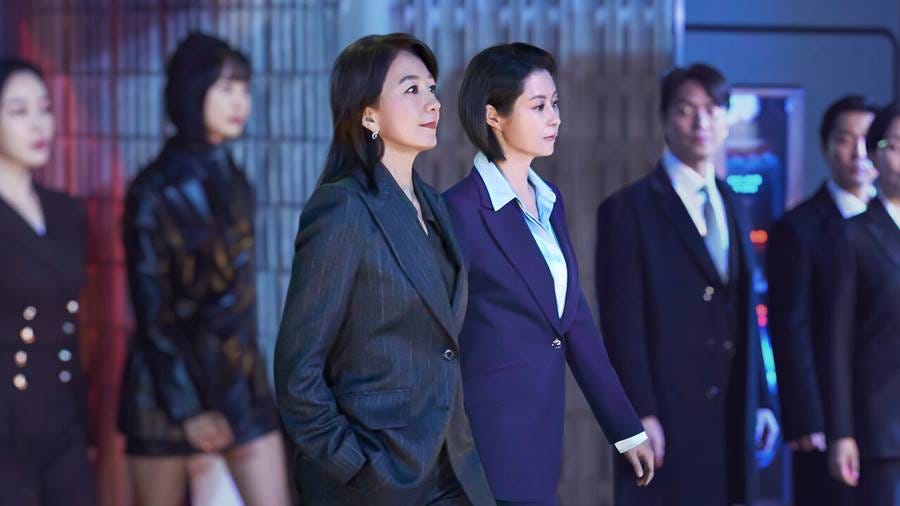
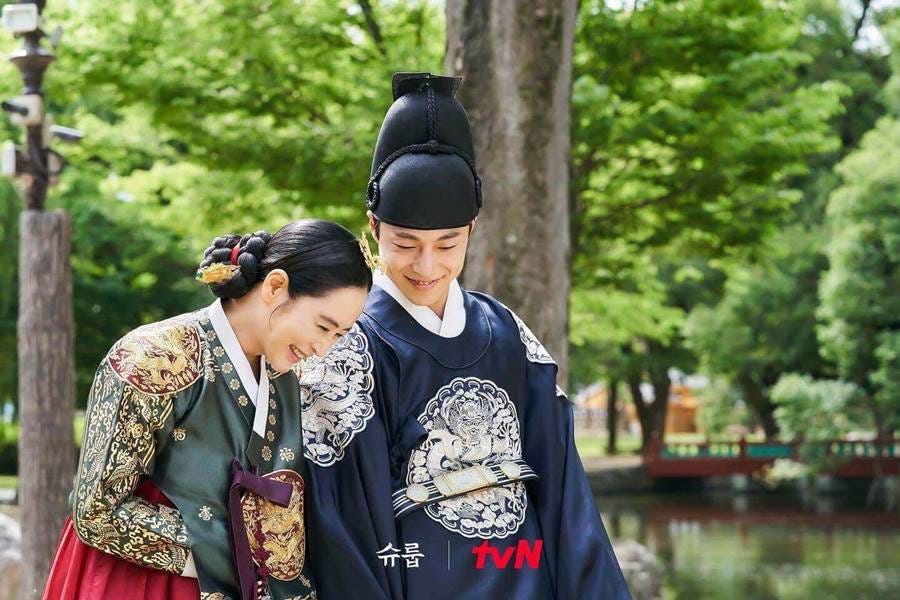
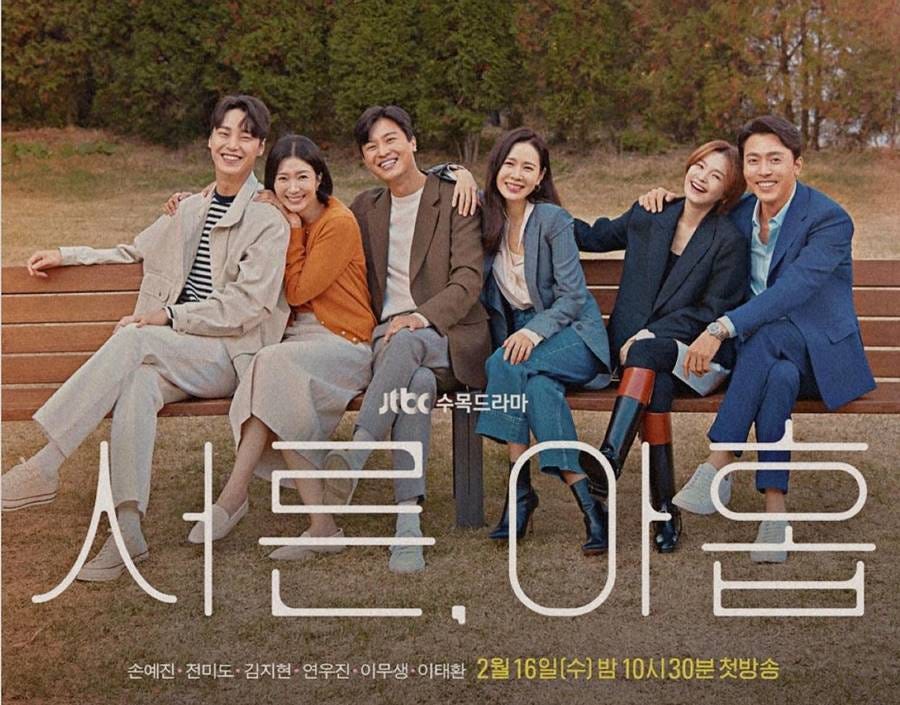


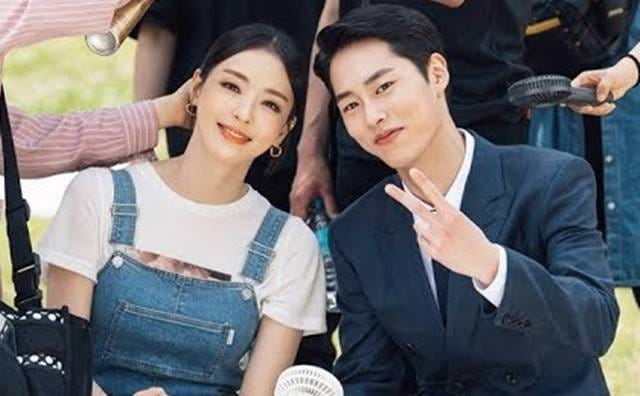
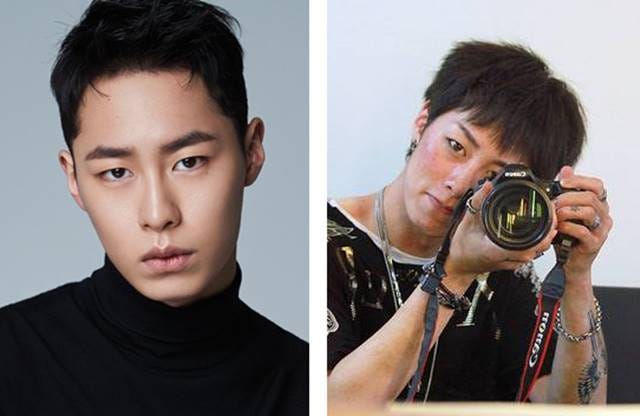
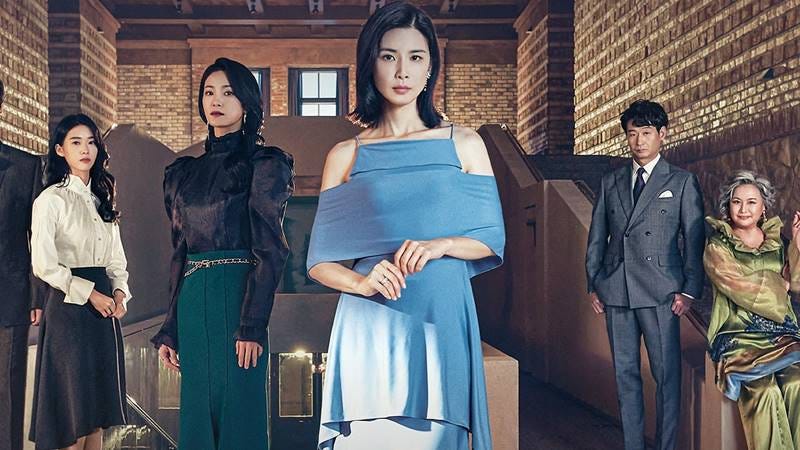
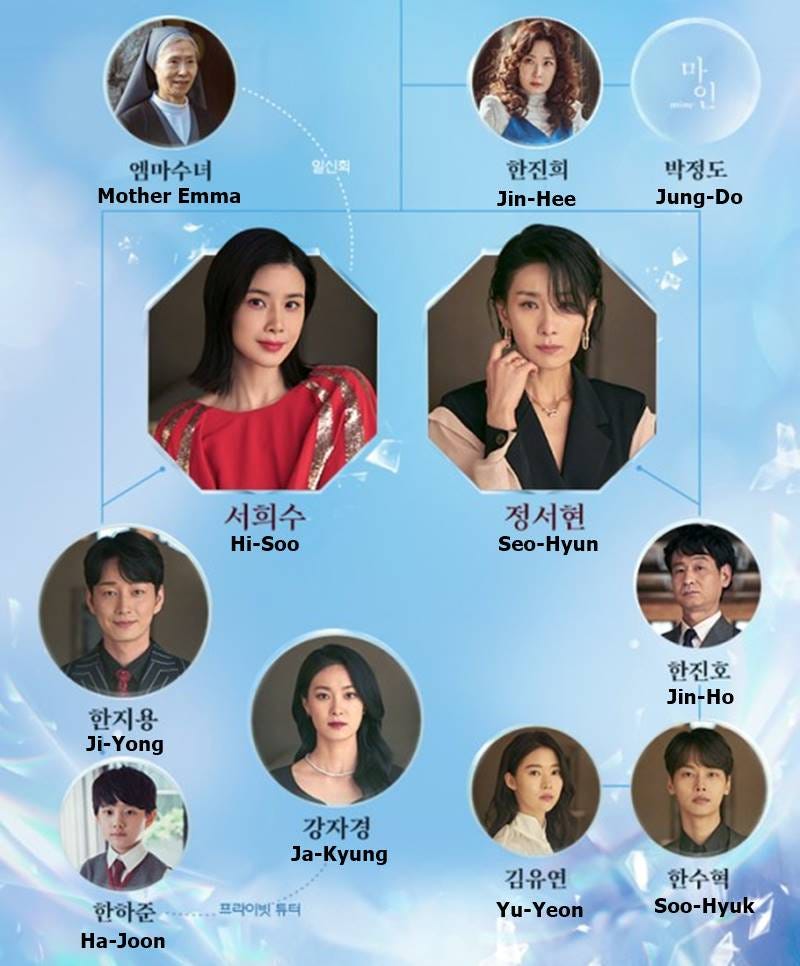
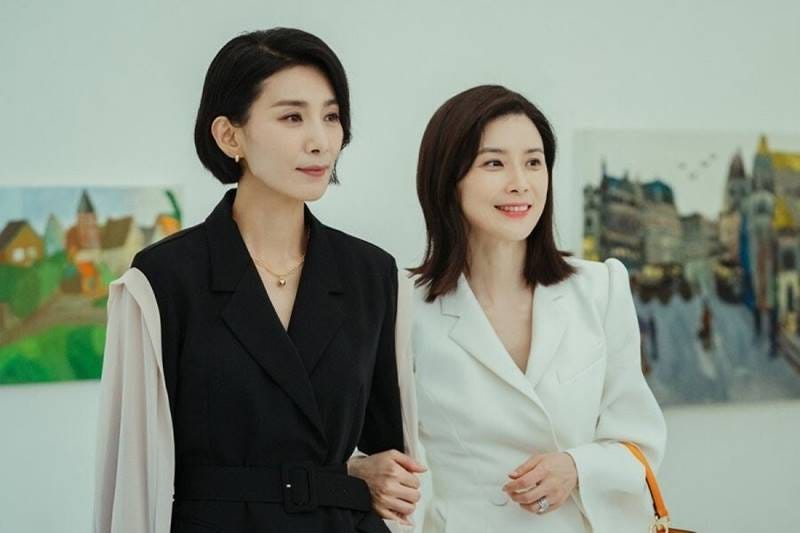

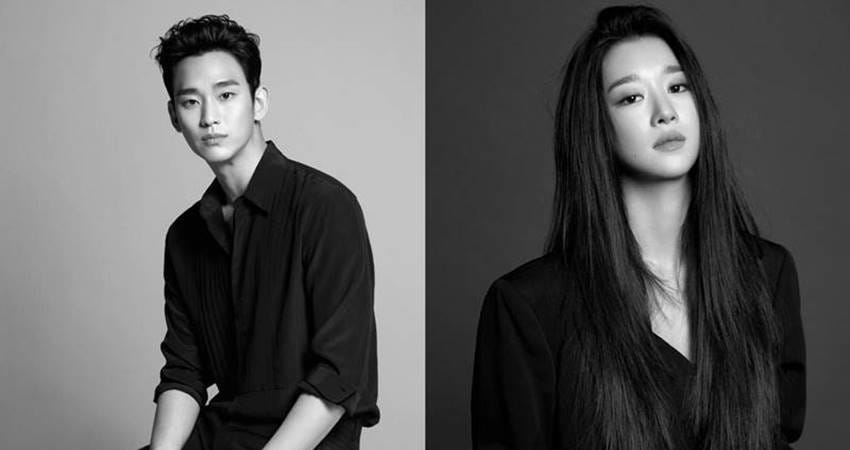
I adored Queenmaker and am so looking forward to another season! And although I hated his character, I gotta admit that Ryu Soo-young did a fantastic job switching from being a victim/token husband to a villain.
absolutely love your list and would add one more??? Dear My Friends? the senior actors in that drama are all so compelling. finally finished Queenmaker and the husband is convinced Kingmaker is coming for Season 2!